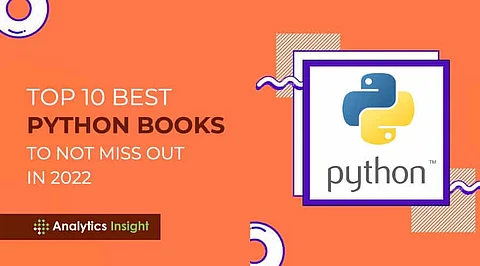

Python books are quite possibly one of the top sources of information about almost any topic, and in this section, we have gathered more than ten top books to help you familiarize yourself and gain some practical knowledge with programming. Some of these books cover comprehensive knowledge about the programming language while some are excellent in giving you hands-on experience with it.
Python is one of the top programming languages for a diverse range of tasks and domains. Python's user-friendliness, high-level nature, emphasis on simplicity, and enhanced code readability make it a favourable choice for many developers around the world.
As the title suggests, Python Tricks brings together a collection of convenient features, tips, and tricks to make you efficient with Python.
In other words, what started out as a fun Twitter experiment, turned into a series of noteworthy and useful tricks accompanied by a clear code example that helped hundreds of Python developers understand the idea behind the various aspects of Python.
The book covers a large collection of tricks from a variety of topics in Python, and they're presented in a well-explained style, but to make full use of this book, you'd still need a strong foundation in Python.
As the name suggests, the author has written this book to act as a quick crash course for readers with little to no programming exposure. The author has made all the introductory concepts as easy as ABC for beginners so that they can start implementing their knowledge on fun projects. The introductory nature of this book also makes it a fitting choice for academics.
This two-part book covers the introduction to programming in its first part, whereas in the second part, it takes on a project-driven approach where the readers are encouraged to complete any or all three programming projects.
Learning Python covers all the fundamentals of the programming language and aims to be a one-stop solution for beginners alike who are in search of an in-depth introduction to Python. Also being a two-part book like the previous one, the author Mark Lutz has tried to create a solid foundation with Python in this part, while the other part focuses more on real-life examples and situations for better practical programming exposure.
The title says it all. Every now and then, you must've come across a boring or repetitive task that makes you say, "not this again." It is these moments that this book intends to eliminate. The author has covered the necessary basics of the programming language in this book to help you create some nifty snippets of Python that can automate a simple but boring task to be done in seconds instead of hours.
If you're intimidated by the "Hard" in the title, don't be. That's just the author's way of using instructions to make you thoroughly go through the chapters and practice what you've learned.
Putting the title aside, the author has done an amazing job presenting the fundamental concepts of Python books at a more beginner-friendly pace to prepare you for complex topics. The book also includes plenty of instructional videos and exercises to enhance your knowledge of Python.
The rate at which Machine Learning is advancing is fascinating. To be able to make the most out of this technology, Python is among the top choices for a glue language. Targeted towards aspiring Machine Learning professionals in search of solutions to real-world machine learning problems, this introductory book requires zero prior experience with Machine Learning.
Python books can be used for a variety of tasks, and one of them is data analysis. If you constantly find yourself occupied with analysing and manipulating structured data or are simply keen on learning about how efficient Python can be for data analysis tasks, you might find this book useful.
The author has explained the fundamentals of working with data in a very comprehensive manner while also touching upon the topic of scientific computing.
Data Science is becoming more of an imperative skill in various domains lately as the benefits it offers is invaluable. The author of this handbook has put more emphasis on learning Data Science as a skill than a new domain of knowledge, as it can prove to be advantageous while applying the skill to a problem at hand.
Python has an excellent community, and this book takes its inspiration from the many unique challenges faced by the community, which are referred to as recipes in the Python Cookbook. The recipes come with relevant examples and detailed background studies on the problems from some of the most insightful members of the community.
Python is a programming language that puts a high emphasis on creating clear and extremely readable code, but there can still be some situations where that isn't achieved. This is where the book Effective Python books come into the picture. The author has covered some common mistakes and provided invaluable insights and practices on how to avoid them in the first place, to write cleaner, reusable, and more effective Python code. If you're constantly struggling to find ways to optimize your code, this could be the right book for you.
Join our WhatsApp Channel to get the latest news, exclusives and videos on WhatsApp
_____________
Disclaimer: Analytics Insight does not provide financial advice or guidance. Also note that the cryptocurrencies mentioned/listed on the website could potentially be scams, i.e. designed to induce you to invest financial resources that may be lost forever and not be recoverable once investments are made. You are responsible for conducting your own research (DYOR) before making any investments. Read more here.
